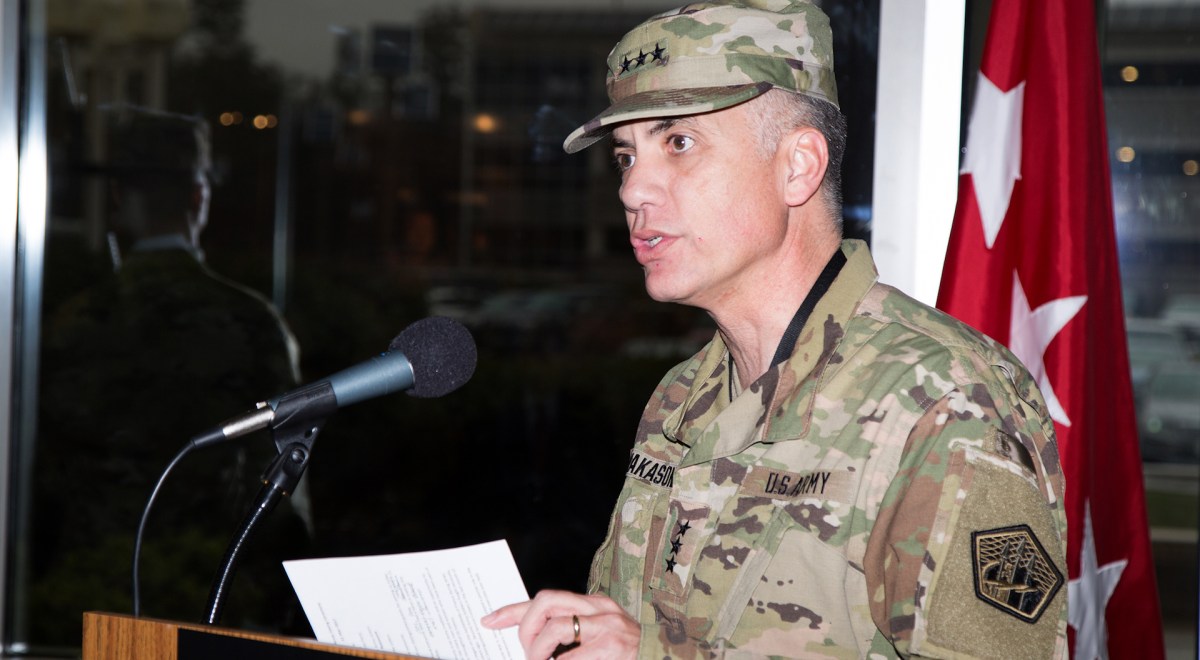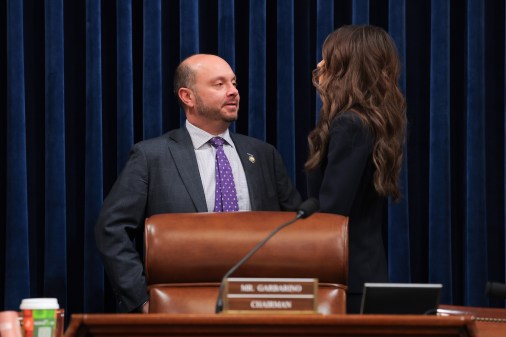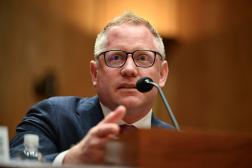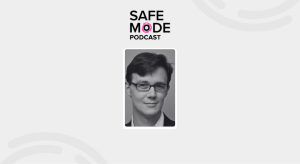Trump’s NSA nominee promises to ‘follow the law’ in 2nd confirmation hearing

Lt. Gen. Paul Nakasone, the current head of Army Cyber Command, took another step Thursday toward taking over the National Security Agency and U.S. Cyber Command.
The public Senate Intelligence Committee hearing featured few pointed questions, as might be expected from a panel that does a lot of its work behind closed doors.The hearing lasted less than one hour. Only eight of the committee’s 15 members attended. The Senate Armed Services Committee approved Nakasone’s nomination earlier this week.
The Intelligence Committee is likely to approve Nakasone’s nomination in the coming days, setting it up for a vote on the Senate floor. The job would put him in the unique and powerful position of guiding cyber-espionage and cyberwarfare for the United States. The current NSA director, Adm. Mike Rogers, is expected to depart from the job soon.
One of the few exchanges of real substance Thursday saw Ron Wyden, D-Ore., ask Nakasone about whether he would “follow the law” if presented with a secret legal order that offered vast and warrantless surveillance powers similar to what occurred following the introduction of the Patriot Act and then later described by Edward Snowden.
While the U.S. government has generally argued that these surveillance abuses were justified in order to fight terrorism, experts say it violated the constitutional rights. Wyden pushed Nakasone to publicly pledge that he would notify the committee if the Trump administration were to ever call on him to launch an illegal operation. Nakasone agreed and also committed to work closely with the committee during his tenure.
“There is a lot riding on how you approach similar situations,” said Wyden.
Nakasone has been the favorite for the job for at least four months. His experience in military intelligence dates back multiple decades in various roles, including managing intelligence collection in Afghanistan.
Nakasone would take over the NSA at a time when Russia’s shows continued aggression in cyberspace. Other challenges include the NSA’s recent leaks of classified information and reports of low morale at the agency, according to prior reporting by The Washington Post and CyberScoop.
In addition to committing to work with the Senate in the future, Nakasone said he supported the creation of an overarching cybersecurity policy framework that could help draw “red lines” for international behavior in cyberspace. Nakasone said such a framework would likely be written by the executive branch with input from the Pentagon and that he too would offer insight.
Earlier this week, Nakasone told lawmakers in a Senate Armed Service Committee hearing that there is an ongoing conversation between the military and White House concerning the appropriate authorities for U.S. Cyber Command. At the moment, the military is limited in what offensive cyber-operations it can launch outside of declared war zones because of longstanding regulatory restrictions.
Currently, the top leader of NSA is “dual-hatted,” meaning he also runs U.S. Cyber Command, which is similarly located at Fort Meade in Maryland. A decision about whether or not to split the dual-hat status could be decided as early as this year. Nakasone, if confirmed, will offer his recommendation on the decision within 90 days to Secretary of Defense Jim Mattis.






